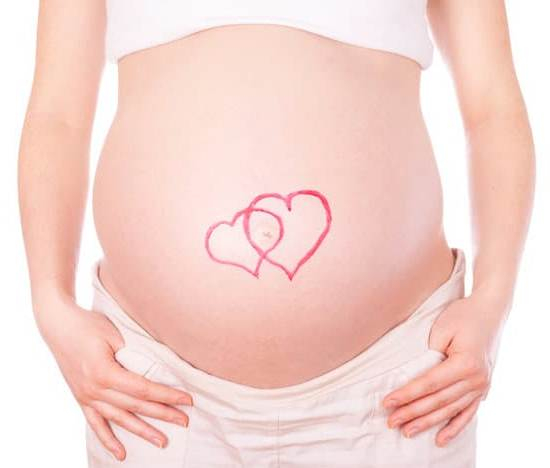Caffeine consumption during pregnancy is a topic of much debate and concern among expectant mothers. With conflicting information available, many pregnant women wonder, “Is caffeine bad for pregnancy?” Understanding the impact of caffeine on pregnancy is crucial for making informed choices for both maternal and fetal health.
Research on caffeine intake during pregnancy has provided insights into the potential risks associated with its consumption. Experts have varying opinions on whether caffeine should be completely avoided or if moderate intake is acceptable. The effects of caffeine on fetal development and growth have been a major point of focus in these studies, shedding light on how this stimulant can impact the unborn child.
For pregnant women, navigating safe levels of caffeine consumption can be challenging. While some guidelines suggest limiting daily intake, others recommend avoiding it altogether. In this article, we will explore the research on caffeine during pregnancy, the potential risks involved, safe levels of consumption, alternatives to caffeinated beverages, and tips for managing caffeine intake while expecting.
Research on Caffeine Consumption During Pregnancy
When it comes to caffeine intake during pregnancy, experts generally agree that moderation is key. The American College of Obstetricians and Gynecologists (ACOG) states that consuming moderate amounts of caffeine, around 200 milligrams per day, is considered safe for most pregnant women. This amount is roughly equivalent to one 12-ounce cup of coffee. However, it is crucial for pregnant women to consult with their healthcare provider about their individual caffeine consumption.
Studies have shown that high levels of caffeine intake during pregnancy may be associated with an increased risk of miscarriage, preterm birth, low birth weight, and other adverse pregnancy outcomes. Additionally, caffeine crosses the placenta and can affect the developing fetus. It is important for women who are pregnant or planning to become pregnant to be cautious about their caffeine consumption and consider alternative options.
In addition to the potential risks of high caffeine intake during pregnancy, some experts also suggest that pregnant women may metabolize caffeine at a slower rate, leading to higher levels of caffeine in their bloodstream. This heightened sensitivity to caffeine could further increase the possible negative effects on both the mother and the unborn child. It is crucial for pregnant women to be aware of these factors and make informed decisions about their caffeine consumption during pregnancy.
| Impact | Details |
|---|---|
| Risks of high caffeine intake | Increased risk of miscarriage, preterm birth, low birth weight |
| Caffeine metabolism in pregnant women | Slower metabolism potentially leading to higher blood levels |
Potential Risks of Caffeine Intake for Pregnant Women
Increased Risk of Miscarriage
Research has suggested that high levels of caffeine consumption during pregnancy may be linked to an increased risk of miscarriage. While the exact correlation is still being studied, many experts recommend that pregnant women limit their intake of caffeine to reduce this risk. It is believed that caffeine can affect blood flow to the placenta, potentially impacting fetal development.
Impact on Fetal Heart Rate and Development
Another potential risk of caffeine intake for pregnant women is its impact on the fetal heart rate and overall development. Some studies have found that high levels of caffeine in the mother’s system can lead to an increased heart rate in the fetus. This could potentially affect the baby’s growth and well-being. To ensure optimal fetal development, it is important for expecting mothers to be mindful of their caffeine consumption.
Disruption of Sleep Patterns
Consuming high amounts of caffeine during pregnancy can also lead to disruptions in sleep patterns for both the mother and the developing baby. Poor sleep quality can have a negative impact on overall health and well-being during pregnancy. Pregnant women who are experiencing difficulty sleeping should consider reducing their caffeine intake to improve their rest and support a healthy pregnancy.
Overall, while moderate caffeine consumption is considered safe for most pregnant women, it is essential to be aware of the potential risks associated with excessive intake. Consulting with a healthcare provider and monitoring your caffeine consumption can help ensure a healthy pregnancy for both you and your baby. Remember that every woman’s body reacts differently, so individual tolerance levels may vary when it comes to caffeine consumption during pregnancy.
Effects of Caffeine on Fetal Development and Growth
During pregnancy, it is essential for women to be mindful of their caffeine intake as it can have potential risks on fetal development and growth. Research has shown that high levels of caffeine consumption during pregnancy can increase the risk of miscarriage, low birth weight, and even preterm birth. It is crucial for pregnant women to understand the effects that caffeine can have on their unborn child.
To better comprehend the impact of caffeine on fetal development and growth, consider the following points:
- Caffeine crosses the placenta: When consumed, caffeine easily crosses the placenta and reaches the fetus, potentially affecting its heart rate and metabolism.
- Developmental delays: High levels of caffeine consumption have been linked to developmental delays in babies, impacting their cognitive abilities and physical growth.
- Risks of stillbirth: Studies suggest that excessive caffeine intake increases the risk of stillbirth, emphasizing the importance of moderation during pregnancy.
It is important for pregnant women to limit their caffeine intake to ensure the health and well-being of their baby. While a complete avoidance of caffeine is not necessary, staying within safe levels is paramount. Consulting with healthcare providers about appropriate caffeine consumption and considering alternatives can help mitigate any potential risks associated with caffeine during pregnancy. Remember, moderation is key when it comes to protecting your baby’s development.
Safe Levels of Caffeine Consumption During Pregnancy
During pregnancy, many women wonder about the safety of caffeine consumption and how much is considered safe for both their own health and the baby’s well-being. Research on this topic has shown that moderate caffeine intake is generally considered safe during pregnancy. According to experts, consuming less than 200 milligrams of caffeine per day is unlikely to cause any harm to the developing fetus. This amount is roughly equivalent to one 12-ounce cup of coffee.
However, it is important for pregnant women to be mindful of not only the amount of caffeine they consume but also the sources of caffeine in their diet. Caffeine can be found in various products such as tea, soda, chocolate, and certain medications. It is crucial for expectant mothers to keep track of their overall caffeine intake from all sources to ensure they stay within safe limits.
For some women, cutting out caffeine entirely during pregnancy may not be realistic or necessary. But for those who are concerned about potential risks or prefer to minimize their intake, there are alternatives to consider.
Decaffeinated coffee, herbal teas, and drinks like water or fruit juices can be substituted for caffeinated beverages without compromising taste or enjoyment. Making small changes like these can help pregnant women maintain a healthy lifestyle while reducing their caffeine consumption to a safe level for pregnancy.
Alternatives to Caffeine for Pregnant Women
Herbal Teas
One of the alternatives to caffeine for pregnant women is herbal teas. Herbal teas are a great way to enjoy a warm, comforting beverage without the added caffeine. Some herbal teas, such as peppermint or ginger tea, can even help with nausea and digestive issues commonly experienced during pregnancy. It is important to note that not all herbal teas are safe during pregnancy, so it’s essential to consult with your healthcare provider before trying any new herbal tea.
Decaf Coffee
Another option for pregnant women looking to reduce their caffeine intake is decaffeinated coffee. Decaf coffee provides the same familiar taste of coffee without the stimulating effects of caffeine. However, it’s important to choose decaffeinated coffee that has been processed without chemicals, as some methods may not be safe during pregnancy. Be sure to read labels carefully and opt for natural decaffeination processes.
Fruit-Infused Water
Staying hydrated is crucial during pregnancy, and one refreshing alternative to caffeine is fruit-infused water. Simply add slices of fresh fruits like oranges, lemons, strawberries, or cucumbers to a pitcher of water for a flavorful drink without any caffeine. Fruit-infused water not only keeps you hydrated but also provides essential vitamins and minerals for both you and your baby. It’s a delicious way to stay healthy and avoid the potential risks associated with caffeine consumption during pregnancy.
Tips for Managing Caffeine Intake During Pregnancy
During pregnancy, it is important for women to be mindful of their caffeine intake to ensure the health and well-being of both themselves and their unborn child. Here are some tips for managing caffeine intake during pregnancy:
- Consult with your healthcare provider: Before making any changes to your diet or lifestyle during pregnancy, it is crucial to consult with your healthcare provider. They can provide personalized guidance on how much caffeine is safe for you to consume based on your individual health status.
- Keep track of your caffeine consumption: It can be helpful to keep a journal or use a tracking app to monitor your daily caffeine intake. This can make it easier to stay within safe limits and adjust as needed.
- Read labels carefully: Caffeine is not only found in coffee and tea but also in many other products such as chocolate, energy drinks, and some medications. Make sure to read labels carefully to know the caffeine content of the products you consume.
It is always better to err on the side of caution when it comes to consuming caffeine during pregnancy. The keyword “is caffeine bad for pregnancy” may raise concerns among pregnant women, reinforcing the importance of being informed about safe levels of consumption. By following these tips and staying informed, pregnant women can effectively manage their caffeine intake and support a healthy pregnancy.
Real-Life Experiences
During pregnancy, many women find themselves grappling with the question of whether caffeine is safe to consume or if it poses potential risks to their developing baby. While experts offer guidelines and recommendations, real-life experiences from women who have navigated caffeine consumption during pregnancy can provide valuable insights into how individuals approach this issue.
One woman shared that she chose to completely eliminate caffeine from her diet during pregnancy due to concerns about its impact on her unborn child. She found that switching to decaffeinated alternatives, such as herbal teas or fruit-infused water, helped her manage cravings without compromising her baby’s health. This decision was supported by her healthcare provider, who emphasized the importance of prioritizing the baby’s well-being over personal preferences.
In contrast, another woman described how she continued to consume a moderate amount of caffeine during pregnancy after consulting with her doctor. She acknowledged that reducing her intake was challenging but opted to limit herself to one small cup of coffee per day.
This approach allowed her to satisfy cravings while mitigating any potential risks associated with excessive caffeine consumption. Ultimately, both women prioritized open communication with their healthcare providers and tailored their choices based on individual circumstances and medical advice.
Conclusion
In conclusion, the question “Is caffeine bad for pregnancy?” is one that continues to spark debate among experts and expectant mothers alike. While some studies suggest that moderate caffeine consumption during pregnancy may not pose significant risks, it is crucial for pregnant women to be aware of the potential adverse effects associated with high levels of intake. Research has indicated that excessive caffeine consumption during pregnancy can lead to various complications, including low birth weight, preterm birth, and even miscarriage.
It is important for pregnant women to stay informed about safe levels of caffeine consumption and consider alternative options to satisfy their cravings for energy-boosting drinks. Opting for decaffeinated beverages or herbal teas can be a healthier choice for expectant mothers who want to reduce their caffeine intake. Additionally, staying hydrated, practicing mindful eating habits, and maintaining a well-balanced diet are essential ways to support a healthy pregnancy.
Ultimately, while it is advisable for pregnant women to limit their caffeine intake, individual responses may vary. It is always best to consult with healthcare professionals and make personalized decisions based on one’s unique health circumstances. By being proactive in managing their caffeine consumption and making informed choices, pregnant women can prioritize the well-being of themselves and their developing baby throughout this crucial period in their lives.
Frequently Asked Questions
How Does Caffeine Affect a Fetus?
Caffeine can cross the placenta and reach the fetus, affecting its development. High levels of caffeine consumption during pregnancy can lead to low birth weight, miscarriage, and other complications.
Is One Coffee a Day OK When Pregnant?
While some studies suggest that consuming moderate amounts of caffeine (around 200mg per day) is safe during pregnancy, it is recommended to limit intake to minimize potential risks. However, individual tolerance to caffeine can vary among pregnant women.
When Should You Avoid Caffeine in Pregnancy?
It is advisable for pregnant women to avoid or at least limit caffeine intake during the first trimester when the baby’s development is most critical. In addition, if a woman has a history of miscarriage or preterm labor, it is best to avoid caffeine altogether to reduce any potential risks to the pregnancy.

Welcome to my fertility blog. This is a space where I will be sharing my experiences as I navigate through the world of fertility treatments, as well as provide information and resources about fertility and pregnancy.





